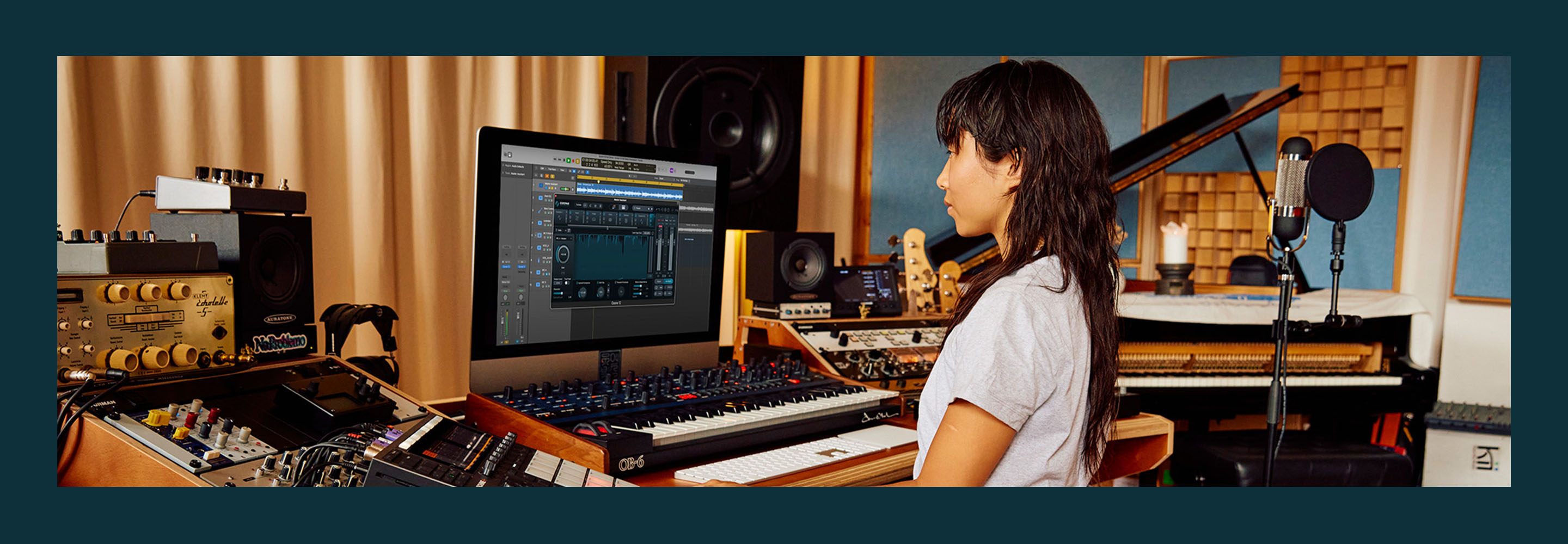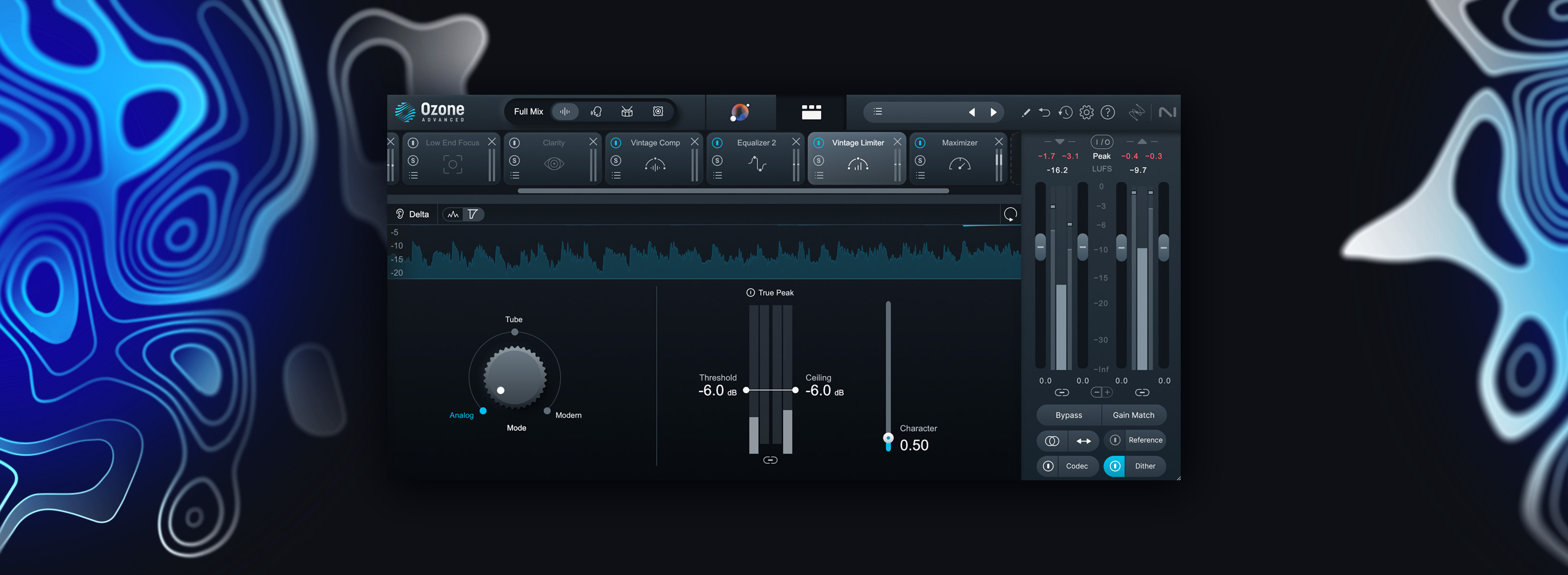
Grimes Chats Unruly Mixes, Her Production Style, and the Godliness of Ableton Live
Grimes’ productions are full of emotive intricacy and complexity. Hear her thoughts on unruly mixes, her production style, and the Godliness of Ableton Live.
Endlessly enigmatic and always creating, Grimes’ production style has upended standards for years. We spoke with her about unruly mixes, her production style, the godliness of Ableton, and some of her favorite womxn producers. Check out the Spotify playlist of artists she mentions below.
“My only priority in 2020 is quality. What will yield the best outcome.”
Q: You've a high level of agency over your productions, and each track is unmistakably Grimes even before your vocals come in. How have you maintained this artistic control over the production of your work as you've achieved more success and fame? Do you often have to swat away outside forces who may want to lend a hand to your production?
Grimes: The beauty of being the producer is you’re designing the ship and driving it haha. So it’s pretty easy to do as you please creatively. My team doesn’t bother me too much about outside help these days, but I want to collab more now. I’d like to learn from other producers too. My only priority in 2020 is quality. What will yield the best outcome.
Q: When in your process (if at all) do you hand off your work to a mixing or mastering engineer?
Grimes: When the album is due and I am forced too! Occasionally I mix and/or master it myself, but rarely. I have some regrets where the demo was better than the mix but we went with the mix cuz of convention. I think it’s best to just put out the best sounding thing.
Q: In a recent Pitchfork interview, you mentioned how "Dark Souls" was cut from Miss Anthropocene because it was an "engineering nightmare." What made that track so challenging to produce? And if Dark Souls is your second favorite video game, what is your first?
Grimes: My favourite video game is Bloodborne. There are no shields. It teaches you confidence, speed and aggression like nothing else. The track “Dark Souls” was perhaps never meant to see the light of day. From a mix perspective it had breakbeats sampled from t.A.T.u. and samples of fighter jets and tons of bass and like 100 layers of vocals. I got too wild and then there was no going back and the file barely opens.
Q: When you’re producing for your records, do you keep the logistics of a live performance context in mind?
Grimes: Not anymore. Too limiting.
Q: Your production style is incredibly complex and layered—overflowing with ideas yet never tipping into a muddled, overwhelming production. How do you self-edit to achieve such expert clarity?
Grimes: Haha there’s a lot of failure that doesn’t see the light of day.
Q: What tools/gear do you feel lucky to have at your disposal now versus when you were just beginning your career? Which had the highest degree of influence in evolving your sound? Do you ever miss the constraints of having fewer tools at your disposal?
Grimes: Ableton [Live] is my god. Bless the ppl who made that. Seriously. Bless those weird German men. The DAW is like the paintbrush so that has the biggest effect on my sound. I find Ableton to be the most versatile and fast. I wish it had better stuff for vocals but it serves creativity the best of all the DAW’s in my opinion. There’s always constraints. My studio is in shambles at the moment haha.
Q: Where do you see the greatest inequities in the music industry?
Grimes: Hmmmmmm good question. I think there’s a lot of issues with the non-art side of the industry. Ppl sign their life away to a label or manager only to be ignored but legally unable to pursue a better situation. Ppl Getting millions of plays and barely making rent. It’s easy to take advantage of artists. There are so many artists and so few spots that the business person is always in a position of power. I’ve seen many a great artist struggling. It’s worrisome.
Q: When attempting to address gender inequity, do you think the industry is too focused on the binary? Do you feel like there’s adequate space for folks across the gender spectrum in the industry as it exists now? If so, where do you see that space opening up? And if not, how do you think the industry can start to foster equity for all gender identities?
Grimes: The world seems too focused on binary probably? Although I think we’re at a tipping point in large part due to the fact that a surprising amount of iconic producers/artists do not fit easily into a gender binary.
Q: In your experience, what is the greatest barrier to success for womxn producers?
Grimes: I’m seeing a lot of womxn producers right now. Peggy Gou, ANNA, Lily Palmer, Yung Baby Tate, Sophie, Rezz. Most just seem less pop-oriented and more avant-garde. I don’t think that’s a problem but we view success in music by metrics which is dumb cuz streaming is so skewed by playlists and algorithms anyway. Perhaps we value streaming numbers above artistic success and this devalues adventurous minds.
Q: Do you see different barriers being put up for BIWOC than for white womxn?
Grimes: It has seemed traditionally like white women get more cred. But off the top of my head the most successful producers at the moment seem like Wondagurl (she annihilated the Tenet Travis Scott collab btw) and Linda Perry, which is cool.
Q: In your view, what’s the most valuable thing that allies can do to make progress toward truly equitable and intersectional opportunities for musicians and producers?
Grimes: I’m not sure but the gatekeeping in music is a big problem. I think the producer’s role in an artist’s sound is often undervalued.


